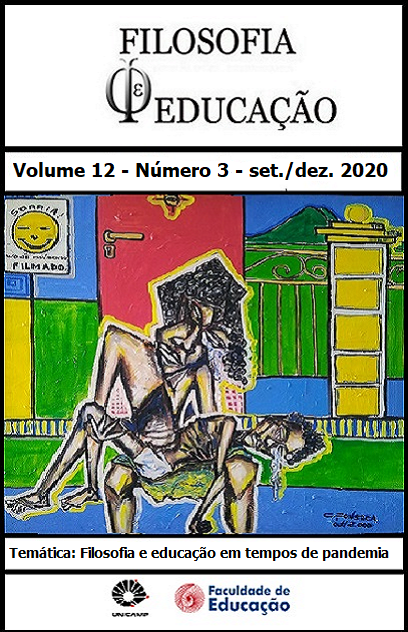Abstract
The Coronavirus pandemic (Covid-19) puts society in a situation where all educational systems, have been paralyzed or have had a very drastic commitment to disrupt educational activities. Universities and private colleges have moved to unprecedented remote and distance learning operations in order not to stop the academic calendar. In this sense, this article aims to discuss the importance of Information and Communication Technology (ICT) as a mediator in Brazilian higher education during the Covid-19 pandemic. The methodology employed was qualitative and bibliographic, through research on theoretical frameworks, Brazilian legislation, in addition to the observation of the daily life of Brazilian higher education in the mass media. From the analysis of the results obtained, it was possible to conclude that the aid of technologies, the teacher benefits the student during the period of the coronavirus pandemic, as it makes a broader approach and allows him/her to make associations, through remote classes that can be enhanced with the active teaching methodologies.
References
BRASIL. Lei nº 9.394, de 20 de dezembro de 1996. disponível em:<http://www.planalto.gov.br/ccivil_03/leis/l9394.htm> Acesso em 11 Abr. 2020.
BRASIL. Educação Superior – Inep. Disponível em:<http://portal.inep.gov.br/> Acesso em 11 Abr. 2020.
CASTELLS, Manuel. A Galáxia da Internet. Rio de Janeiro: Zahar, 2003.
CÉSAR, Cyro. Rádio: Inspiração, Transpiração e Emoção. São Paulo: Ibrasa, 3º edição, 1999.
DOTTA (Sílvia). Aulas virtuais síncronas: Condução de webconferência multimodal e multimídia em Educação a Distância. Santo André – SP: Editora UFABC, 2014.
GIL, Antonio Carlos. Didática do Ensino Superior. 1ª edição (2010). 5ª Reimpressão. – São Paulo: Atlas, 2010.
LÉVY, Pierre. Cibercultura. 1. ed. São Paulo : Editora 34, 1999.
MARQUES, Camila. Ensino a distância começou com cartas a agricultores. Folha On Line, 29 set. 2004. Disponível em: http://www1.folha.uol.com.br/folha/educacao/ult305u396511.shtml . Acesso em 01 Abr. 2020.
MORAN, José Manuel, Marcos T. Masetto, Marilda Aparecida Behrens. Novas tecnologias e mediação pedagógica. Campinas, SP: Papirus, 2000.
PONTES, Joyce Karoline Pinto Oliveira. Educação superior indígena no Amazonas: a tecnologia mediada no ensino. 2019. 172 f. Tese (Doutorado em Sociedade e Cultura na Amazônia) - Universidade Federal do Amazonas, Manaus, 2019.
SALDANHA, L. E. Tecnologia Educacional. Porto Alegre: Globo, 1978.
TAJRA, S. F. Internet na educação: o professor na era digital. São Paulo: Érica, 2002.

This work is licensed under a Creative Commons Attribution-NonCommercial-ShareAlike 4.0 International License.
Copyright (c) 2020 Filosofia e Educação

